Here is my guide to all the do’s and don’ts of visiting Turkey to remember if you want your visit to Turkey to be memorable – for all the right reasons!

Skip Ahead To My Advice Here!
Essential Turkey Travel Tips
Turkey is one of the most visited countries in the world. It’s hardly surprising when you do a little research into why.
Turkey has an epic history combined with fast-paced modern life to explore in Istanbul, and it also has stunning beach resorts on the south coast.
Add mountains, ski resorts, traditions, excellent food, shopping, and ancient ruins, and you can pretty much understand why most airlines—especially Turkish Airlines—fly to Turkey several times a day.
Of course, the Turkish Lira is quite favorable for visitors these days, giving you more for your cash.
You’d struggle to choose only one place to visit in Turkey. This is a vast country; it’s far bigger than most people realize. Istanbul alone is home to 15 million people, and that’s just one city! And then there are the beaches of the south coast, the stunning scenery of Cappadocia, the otherworldly Pamukkale hot springs, and so on.
So, if you’re wondering, “Is Turkey a good place to visit?” we can tell you 100% yes!
Things To Know Before You Go To Turkey
In short, a visit to Turkey can be incredibly varied or focused on just one thing. It can be short (a weekend) or long (literally weeks). If it’s your first time in Turkey, you might need help planning your trip.
You can drift between old-fashioned customs and traditions and the modern way of life quite quickly in this country, but that doesn’t mean there aren’t quite a few do’s and don’ts to bear in mind if you want your visit to be memorable. For all the right reasons!
To give you the best experience possible on your first Turkish adventure, let’s examine what you should do and what you should be cautious about.
Visiting Turkey Do’s
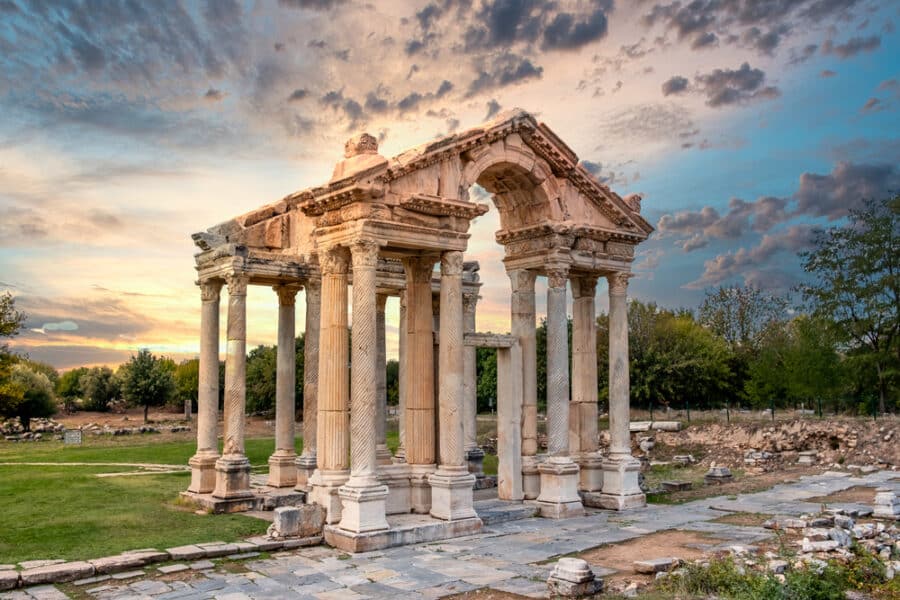
What should you do when visiting Turkey to make sure you experience the wonder of this rather beautiful country?
1. Do Head Away From The Tourist Resorts
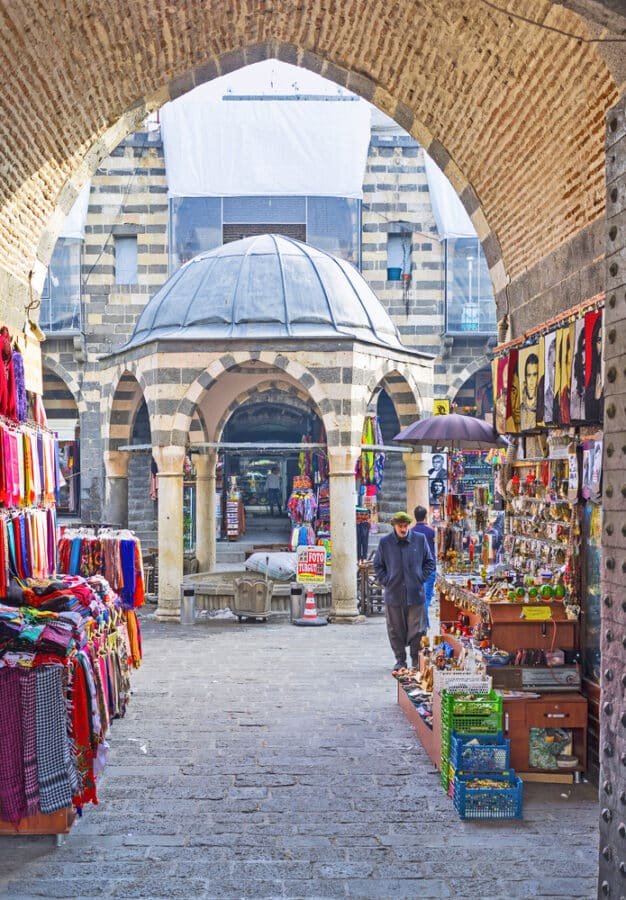
In the summer, the south coast is packed with tourists worldwide and many holidaying Turks. Visit Antalya, Marmaris, Kusadasi, or Bodrum, for instance. These resorts are beautiful, but they don’t show you the best of the country in terms of traditions.
Sure, you’ll see the natural beauty, hear the language, taste the food, and listen to local music, but you won’t get a truly authentic experience.
While visiting the coastal resorts, one of the best tips for traveling to Turkey we can give you is to seek out something a little more traditional, if at all possible. You’ll understand Turkish traditions and more about the Turkish people far better as a result, and you’ll probably find yourself with a few new friends too! It’s not hard to travel around the country, so look for local towns that are easy to reach via bus and head over for a day or two.
Turkey is a massive country. Some parts are exceptionally traditional, while others are very modern and Westernized. Make sure you get out and view it with your own eyes—don’t just lay on a sun lounger all day long.
2. Do Take The Time To Explore Istanbul And Its History

Few cities are as historic and beautiful as Istanbul. This is the only city in the world that straddles two continents: Asia and Europe are separated by the winding Bosphorus and connected via bridges, ferries, and the underwater Marmaray Metro service. Yes, you can visit two continents in one day, and it’s relatively easy!
Istanbul is not a city you will ever explore completely in one visit, so if you want to see the best of it, you need to plan ahead. One of the top tips for visiting Istanbul is to ensure you have a reasonable amount of time.
It’s also worth mentioning that this city is HUGE. You will hit traffic at every turn, but you will also see buildings dating back to the 1400s. There is more history here than perhaps anywhere else, and seeing it for yourself is an absolute must-do on any visit to Turkey.
3. Do Familiarize Yourself With Turkey’s History, Politics & Religion

The country blends secular and progressive movements and regions that value more conservative practices.
A great place to start learning about Turkey’s past is to read about Mustafa Kemal Atatürk – the founding father of the Republic of Turkey after the fall of the Ottoman Empire.
Of course, don’t let your research stop there! There are loads of books on Turkey, both past and present. Here are a few ideas to help you get started:
- A Turkish Awakening by Alev Scott – get a better sense of modern Turkish life and history
- Birds Without Wings by Louis de Bernieres – the fall of the Ottoman Empire, the Consequences of World War I, and the forced migration of Christian Turks to Greece and Muslim Greeks to Turkey
- Atatürk: The Biography of the Founder of Modern Turkey by Andrew Mango
- Crescent & Star by Stephen Kinzer – sheds light on Turkey’s culture and political landscape
- Eat Smart in Turkey by Joan Peterson – learn the fascinating history and culture of Turkish cuisine
4. Do Try The Local Food
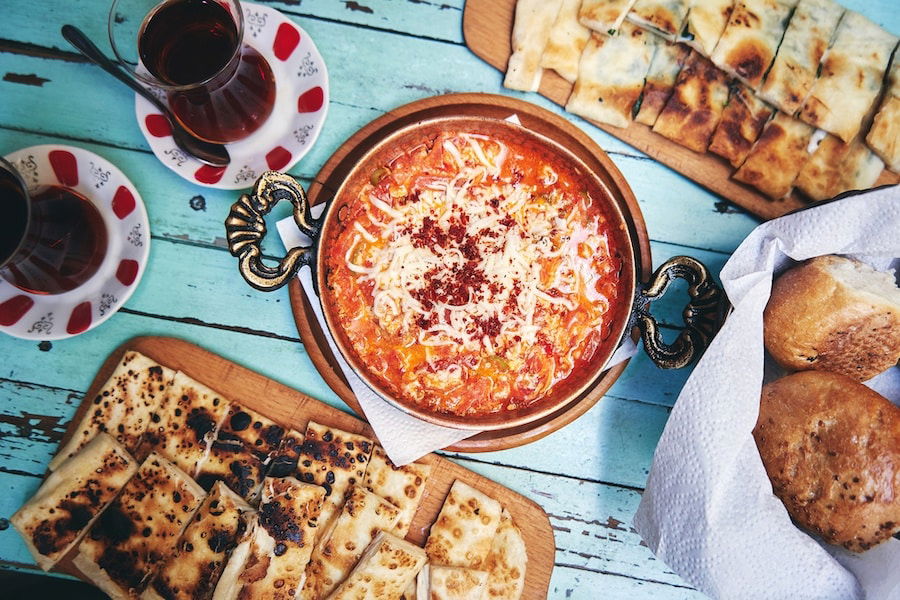
You won’t struggle to find Western food in Turkey. There is at least one McDonald’s, Burger King, Starbucks, and KFC in the major cities and towns. However, try local food if you want to explore this country and allow your palette to enjoy the greatest of treats – especially in the smaller cities. The plus point is that local food is also far cheaper than Western fare!
A few must-tries are lahmacun (a flatbread covered in herby, ground lamb), pide (another flatbread but this time with all manner of different toppings), doner kebab, Adana kebab (a long spicy meat kebab usually served with rice and salad), menemen (a tomato and egg omelet-style breakfast dish). Of course, the famous Turkish breakfast is also known as kahvalti. You will not be hungry after you’ve had this feast of a meal!
It goes without saying that a hot glass of cay (tea) goes with every meal, and you should drink at least three and try Turkish coffee; it is not like anything you have ever tried.
Indulging in the diverse world of Turkish cuisine is one of the biggest “do’s” of visiting Turkey.
5. Do Learn A Few Words Of The Language
While most young people in Turkey speak English, you may struggle to find English speakers if you head out of the main cities and even into the main towns. While you can find yourself an app to help your way through it, and most people rely on pointing and hand signals to communicate their needs, learning a few words of the language will make your visit easier and endear you to the locals.
To help you out with the basics:
- Hello – Merhaba
- Goodbye – Güle güle
- Please – Lutfen
- Thanks – Teşekkürler
- Good night – Iyi geceler
- Good morning – Günaydın
- Good evening – Iyi akşamlar
- How are you? – nasılsın?
6. Do Learn How To Haggle
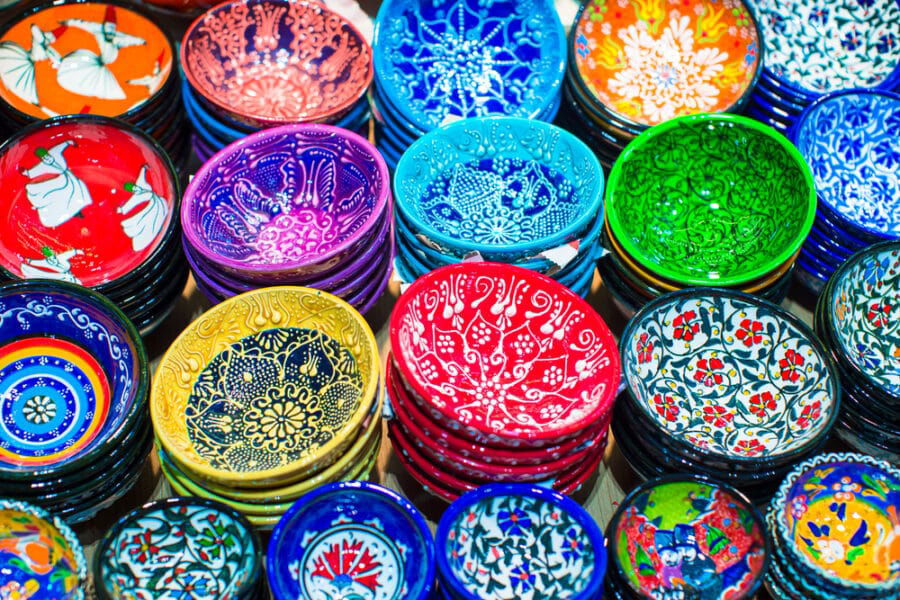
A visit to a colorful and rather loud Grand Bazaar/market is a must-do, and you must learn how to haggle to purchase anything. This means being a little cheeky but to the right point only! Here’s one of the classic Turkey travel tips!
Ask how much something is and then come up with a price you want to pay for it, avoiding robbing them blind. Somewhere in the middle should do it. The vendor will then wave their arms around and huff and puff a little (jokingly, of course) before you meet somewhere in the middle of the two prices. And there you have it – a bargain!
However, you should only try bargaining in markets, not stores, as they will likely tell you to leave!
7. Do Leave Space For Souvenirs
While on the topic of haggling, remember to leave space in your luggage to bring home souvenirs from Turkey. The country is home to so many incredible artisans sharing their crafts, and you will be sad if you have no space to bring some of these stunning pieces of work home!
8. Do Comprehend The Size Of The Country
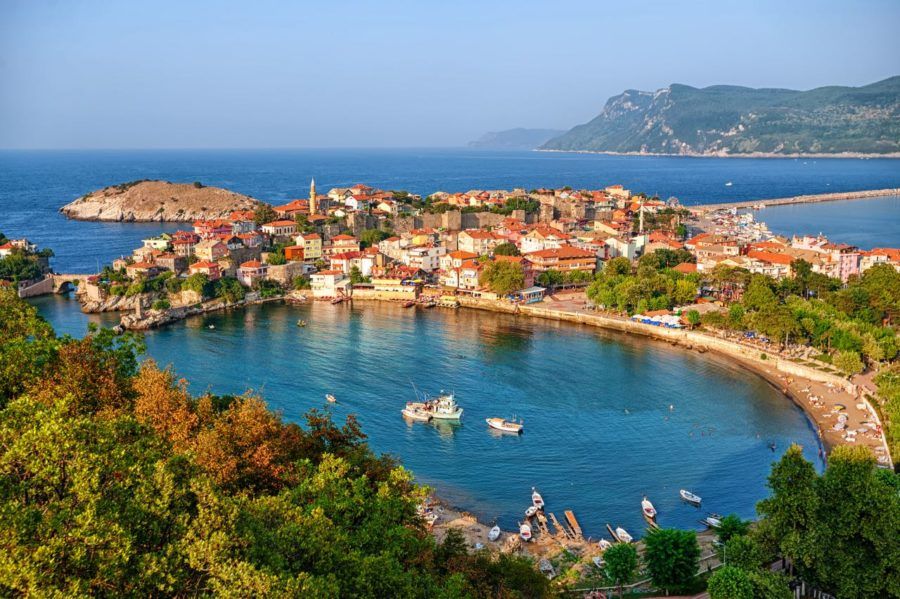
Many assume they can easily travel to Turkey and see almost everything, but that will take a long time! Turkey is 783,562 square kilometers, and if you travel by bus from one side of the country to the other, it will take you the same amount of time as it would to travel from the UK to Australia! For instance, a bus from Marmaris on the south coast to Diyarbakir in the country’s southeast will take around 24 hours!
Therefore, every good Turkey travel guide will tell you not to bite off more than you can chew. Look at different ways to get around but don’t discount the long-distance bus service. This is a great and very comfortable way to travel, although a slow one. Pamukkale and Kamil Koc are two of the biggest long-distance coach providers. However, there are many regional airports, so you can travel by air if you prefer. A flight from Dalaman on the south coast to Istanbul will take around one hour.
9. Do Familiarize Yourself With The Turkish Visa Rules
You need to know about visa rules, which depend on your country of origin. Generally speaking, most countries can purchase an online tourist visa, which lasts 90 days out of every 180 days. Introduced in 2013, the Turkey eVisa is a popular option for travelers visiting Turkey for tourism. The process is online and speedy. Remember that this type of Turkish visa is only available for eligible countries.
If you want to stay longer than 90 days, you’ll need to apply for a residency permit, which you’ll need to apply for online before the end of your tourist visa. Generally, you’ll need to show money in the bank to tide you over (remember, you cannot work in Turkey without a work permit obtained from the Government), Turkish appropriate travel insurance, and proof of where you’re living.
Make sure you avoid overstaying a tourist visa. Once you arrive at Istanbul airport to go home, you’ll end up paying a fine, and depending on how long you’ve overstayed, you might get a ban, too. Check the Visa Turkey tourism system before you arrive.
10. Do Have A Plan To Access WiFi

WiFi can be spotty in Turkey, and often, a passcode is required to access it. However, if your visa information is online, you can access WiFi when you arrive at the airport and need to show it.
Plan to get an international phone plan or a Turkish SIM card. Newer phones (2020 or newer) typically can support eSIM cards that can be downloaded onto your phone, but for all other mobile phones, you will need a physical SIM card.
11. Do Know That Some Websites Are Banned
The most important banned sites you may try to access while traveling in Turkey are:
- PayPal
- Wikipedia
- Booking.com
You can use these sites before entering the country and even book hotels using booking.com ahead of time, but you will not be able to access the sites or book on them once in the country.
If you are a traveler who enjoys making last-minute plans while on vacation, have an idea of sites you will use to book hotels and transport other than booking.com or set up a VPN.
12. Do Bring A Travel Adapter
You will need an F-type adapter for the basic European outlet, which has a standard voltage of 220 V. You can find adapters in Turkey, but don’t waste your time hunting one down on vacation. Buy it ahead of time to avoid the hassle.
13. Do Dress Modestly To Avoid Attention
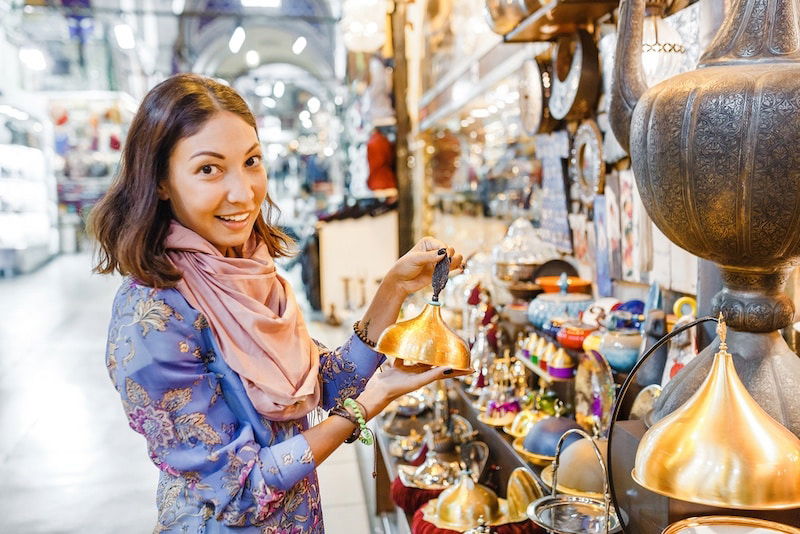
While most of Turkey is very laid back and Westernized, that doesn’t mean you will not attract unwanted attention if you dress incorrectly. Despite being more relaxed than its Middle Eastern neighbors, Turkey is still a conservative Muslim country, especially away from the main tourist resorts.
While you can wear whatever you want on the south coast tourist resorts, you should dress more conservatively away from that. Doing this will prevent unwanted attention and show the respect you want to give.
14. Do Use Public Transport, Especially In Istanbul

You’ll save a tremendous amount of cash if you avoid taxis and other forms of arranged transport instead of opting for public versions. Buses are reliable, cheap, and will quickly get you around most towns and cities. In Istanbul, you have a vast range of different transport options to try, and you need to purchase the Istanbul Card, a prepaid card, to use on all forms of public transport.
By doing this, you’re also getting a far more authentic experience. One of the things not to do in Istanbul is navigate this enormous city in a rental car.
15. Do Realize That The Holiday Resorts Don’t Represent ‘Real’ Turkey
For sure, you’ll find Turkish nights in tourist resorts, and you’ll find local restaurants and many authentic shops, but don’t be fooled into thinking that you’re really experiencing the traditional Turkish way of life.
The tourist resorts are very Westernized, and although they retain some authentic elements, they’re very far away from the genuine way of life you’ll find if you venture into the center of the country or head into the villages just outside the resort you’re visiting.
16. Do Try A Turkish Breakfast
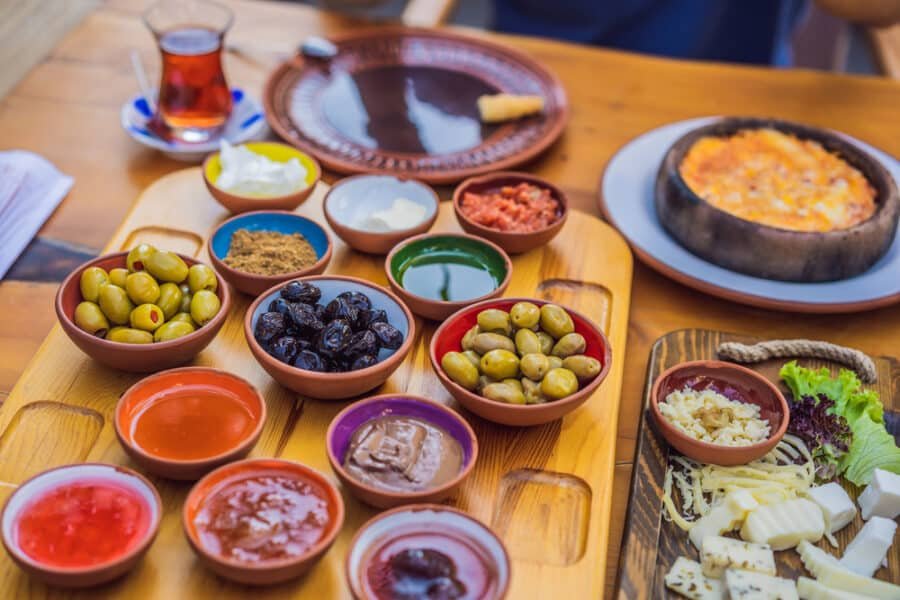
Far too many people visit Turkey and have an omelet or something simple for breakfast. This is a mistake! You cannot visit Turkey without a full breakfast or kahvalti.
This is the single best way to start the day, and you can even have it in the afternoon if you can’t stomach that much food first thing after waking up! You’ll have a table full of small plates and a million different things to try.
It’s a true rite of passage.
17. Do Use Local Vendors For Excursions
If you’re staying in a hotel or if you’re traveling with a holiday company, you’ll notice that they try to sell you excursions to nearby places of interest. You’ll probably want to go on several, and you certainly should, but don’t buy from the rep or hotel.
Instead, venture onto the main street and look for local excursion offices. You’ll find trips cheaper, support the local economy, and be on precisely the same trip as the people who paid more with the holiday company.
18. Do Research On ATMS And Your Bank Card

Different banks charge different amounts depending on the card you’re using and the country it came from. For instance, if you use a UK bank card in Akbank, you’ll pay a fee plus a currency exchange rate from your bank, which is more than 100 lira. It’s good to head online and check rates because some can be very high.
Not all banks charge as much or anything at all, so do some research and find the ones that suit your particular bank card. Also, remember that most places in cities and tourist resorts will accept your credit card or debit cards as payment, so you may not need to draw cash out of an ATM at all.
19. Do Try To Visit More Than One Place If You Can
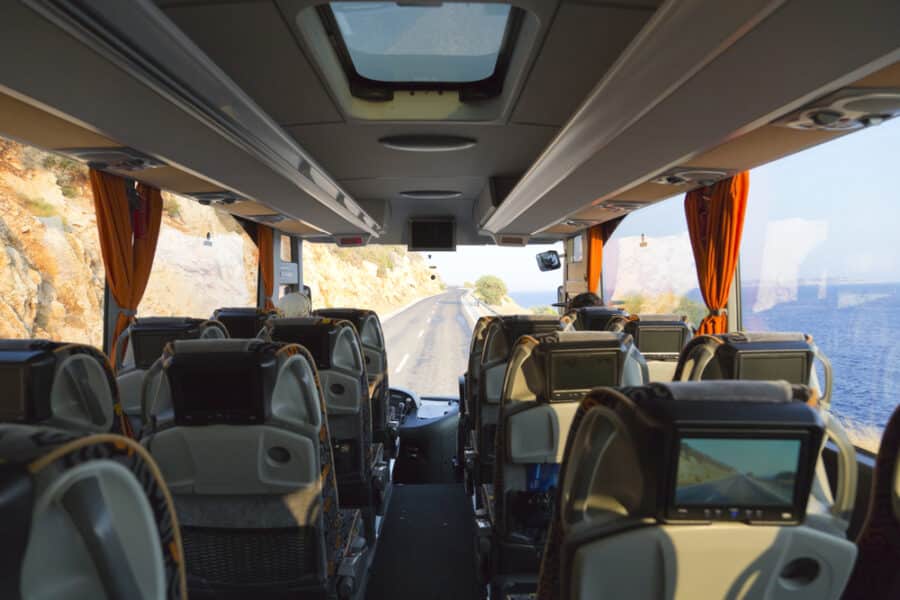
Remember how we said that tourist resorts aren’t really a reflection of authentic Turkish life? Well, that’s a great reason to visit more than one place to get a good view for yourself.
Getting around Turkey is very easy, and you shouldn’t avoid using public transport, especially long-distance coach companies such as Pamukkale or Kamil Koc. You’ll get to see the passing scenery, see more than one place, and do it all comfortably and cheaply.
20. Do Understand The Tea Situation
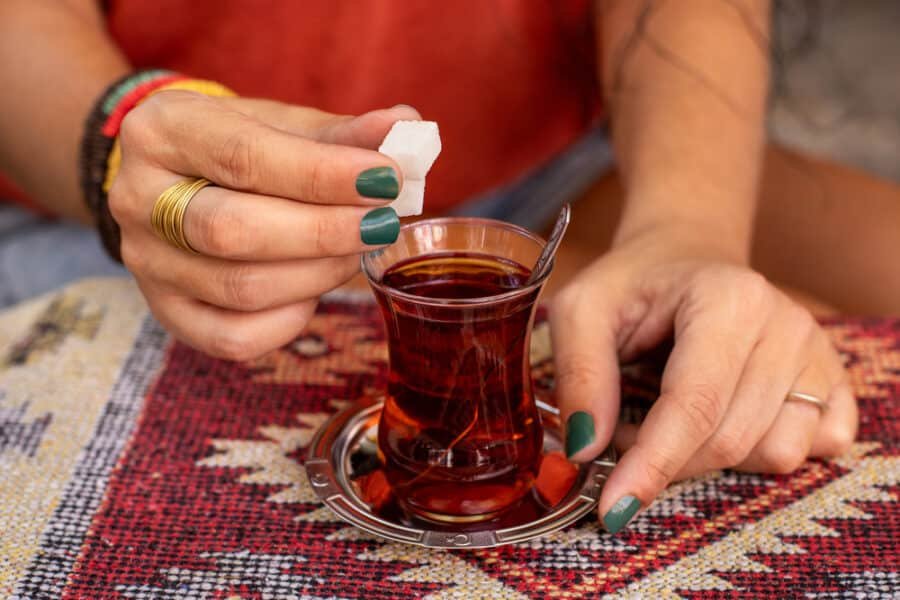
Look, tea is everything in Turkey. People drink buckets of it, and you’ll find it everywhere; it’s just a general way of life. It’s called cay, and it’s a type of black tea that you can add sugar to or drink as it is.
If a person offers you a glass of tea, take it; refusing might seem fine, but it can be impolite.
21. Do Tell The Server Whether You Want Spicy Food Or Not
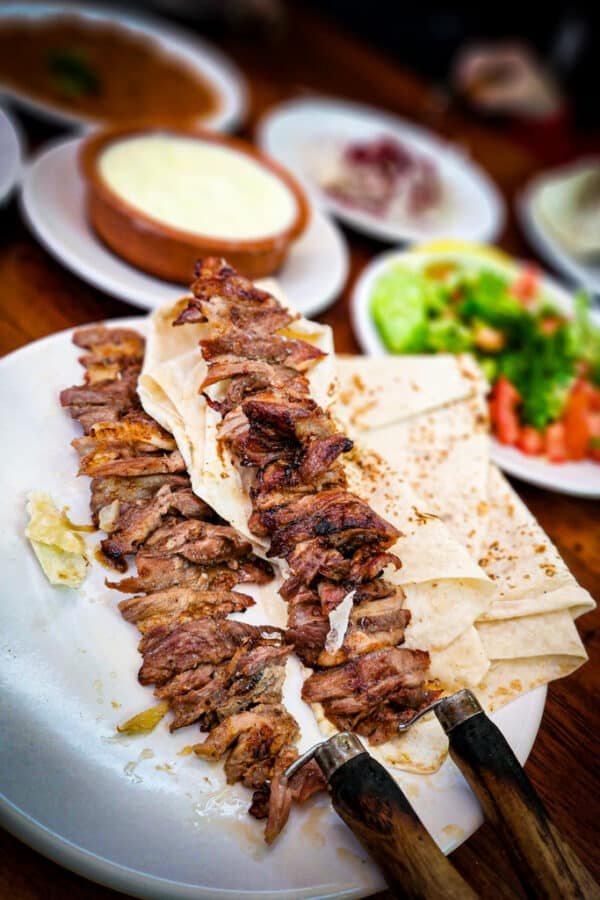
If you’re in a traditional restaurant and you’re ordering Turkish food, make sure you tell the server whether you want it spicy or not.
The words here are acili (spicy) and acisiz (not spicy).
Some types of kebabs are naturally spicy anyway, but many restaurants assume that everyone likes even more spice and add extra unless you tell them otherwise!
22. Do Ask For A Menu With Prices On
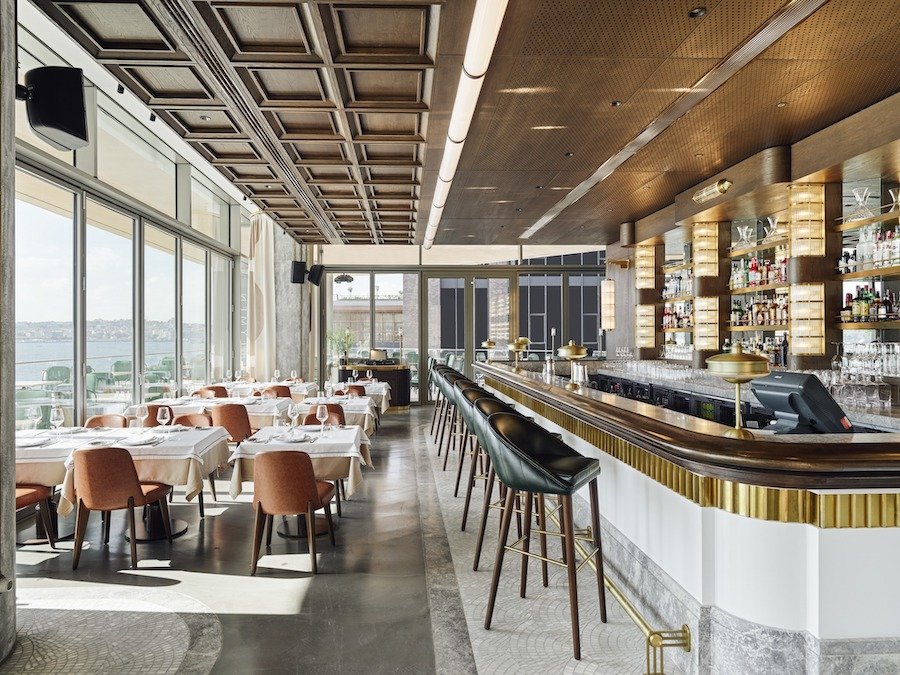
This won’t be an issue in most restaurants, but from time to time, you might come across a menu that doesn’t list the prices. If this is the case, ask the server for another one. You can’t make an informed choice if you don’t know how much things cost, and you might end up with a hefty bill at the end of it.
You might find this in high-end restaurants and Sultanahmet, Istanbul, in particular.
23. Do Be Pickpocket Wary
This is good advice everywhere, but in Istanbul in particular.
If you have a backpack, either small or large, it’s a good idea to wear it in front of you instead of on the back if you’re on the Metro or a bus. You’ll see locals doing exactly the same thing.
Also, it goes without saying that you shouldn’t walk around with valuables and certainly shouldn’t flash your latest iPhone in the street.
Brands We Use And Trust
Visiting Turkey Don’ts

Like any other country, there are a few things you need to bear in mind when visiting Turkey.
24. Don’t Forget To Take Off Your Shoes At The Doorstep
If you’re lucky enough to be invited to someone’s home, make sure you remove your shoes at the door. This is a sign of respect and also links to the idea that you have dirt on your shoes, and by walking into the home, you’re bringing dirt and bacteria into the house, where people sleep and eat.
Not all households will ask you to do this, but do it anyway, and you’ll not risk upsetting anyone.
25. Don’t Assume Someone Is Being Rude If They Tut And Nod Upwards
This is a strange one, but it’s certainly something you’ll see if you communicate with locals. When someone makes a tutting noise and then nods their head upwards, e.g., a backward nod, it means “no.”
They’re not being rude or doing something strange; they’re telling you they don’t want whatever you’ve asked.
26. Don’t Let The Media Scare You

Some travelers feel apprehensive about traveling to Turkey because of media generalizations. It’s true that a series of terrorist attacks occurred a few years ago, but this is incredibly rare – way less rare than gun violence in the United States. In fact, Turkey is a country that many people travel through solo (we have tips for solo Turkey travel here), and they never have any issues.
As with any destination, research typical scams, know local customs, and have an idea of your general itinerary. You will find it’s an incredibly safe place to explore.
27. Don’t Avoid The Double Cheek “Kiss”
When you meet someone for the second time, there is a high chance that they will greet you in a slightly more familiar way; they will semi-hug you and give you a “kiss” on each cheek; however, it will be more of an air kiss and in some cases can be touching cheeks together – it really depends on the person. You’ll see men doing this, but instead of the kiss, they nod the sides of their heads together.
If this happens, it’s lovely because they consider you a friend or even part of their family.
28. Don’t Refuse Food Or Tea If Visiting Someone
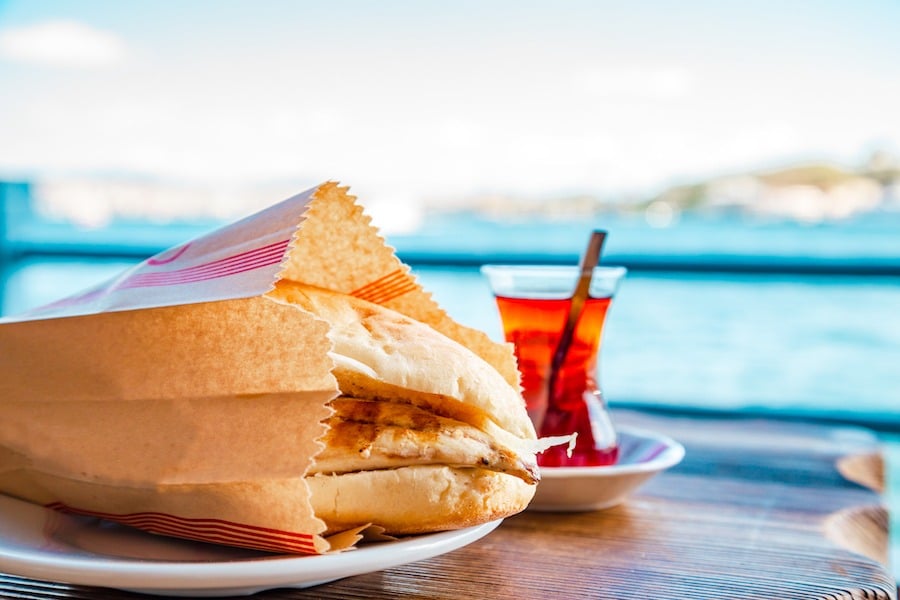
If you’re visiting a home, don’t refuse any food or tea given to you. You might be full and not at all hungry, but at least eat some of it! If they ask you if you’re hungry and you’re not, it’s OK to say so, but if they give you the food without asking, it’s customary to take it.
Turkish hospitality is a huge deal, and refusing it may be considered insulting by some people, even if you don’t mean it to be.
29. Don’t Forget To Pack Clothing For Weather Changes
Turkey is a large country with various climates and topography. Depending on where you are in the country, you can encounter arid desert conditions, temperate weather, chilly snow, and sizzling hot sunshine.
Research the weather in the locations you plan to visit ahead of time so you aren’t surprised by drastic changes in conditions as you travel around the country. Winter weather varies from place to place, so you really should plan ahead if you are going during the winter months.
30. Don’t Forget Etiquette When Visiting Mosques

Istanbul, in particular, has some breathtaking mosques, especially the famous Blue Mosque in Sultanahmet. You’re free to visit; however, mosques will close at prayer times throughout the day, especially on Fridays. Other than that, you can go inside, but remember etiquette in this case.
Women should cover their heads and ensure that their elbows are downwards and their legs are covered. Mosque staff will usually give you a shawl to place around your shoulders or legs if they assume what you’re wearing is inappropriate, but it’s always more respectful to dress appropriately in the first place. Men should wear long pants and a shirt/T-shirt, with shoulders covered. Everyone will need to remove their shoes at the door.
Avoid standing in front of anyone praying; if you want to take photographs, make sure you turn off the flash and never take a photo of someone praying.
While most mosques are free to enter, it’s always a nice token to give a small donation, as this will go towards the upkeep of these beautiful and, in most cases, very historical buildings.
31. Don’t Assume Anything Will Be Done On Time
It’s never a good idea to assume that anything will be done on time in Turkey. This is known widely as “Turkey Time,” which means that if someone says they’ll be there in one hour, they usually mean an hour and a half at the very least! It’s infuriating at first, but you’ll get used to it; in the end, you might find it endearing or see yourself turning up on Turkish time yourself!
32. Don’t Fall For The Drinks Scam
While this is not something that happens everywhere, you may find that you are given local drinks rather than international imports in some tourist resorts. In some cases, this can be of lower quality and, in some cases, may even be fake. The best advice is to drink bottled or draft beer and never leave your drink unattended. This is the same advice you’d received anywhere else in the world.
If you’re keen to drink spirits, such as vodka, make sure you ask if the vodka is a particular brand and, if possible, ask to see the bottle. You should still heed warnings about this, however, as you may find yourself with a rather dodgy stomach the next day; otherwise, at the very least,
33. Don’t Let Taxi Drivers Take You On The “Scenic” Route
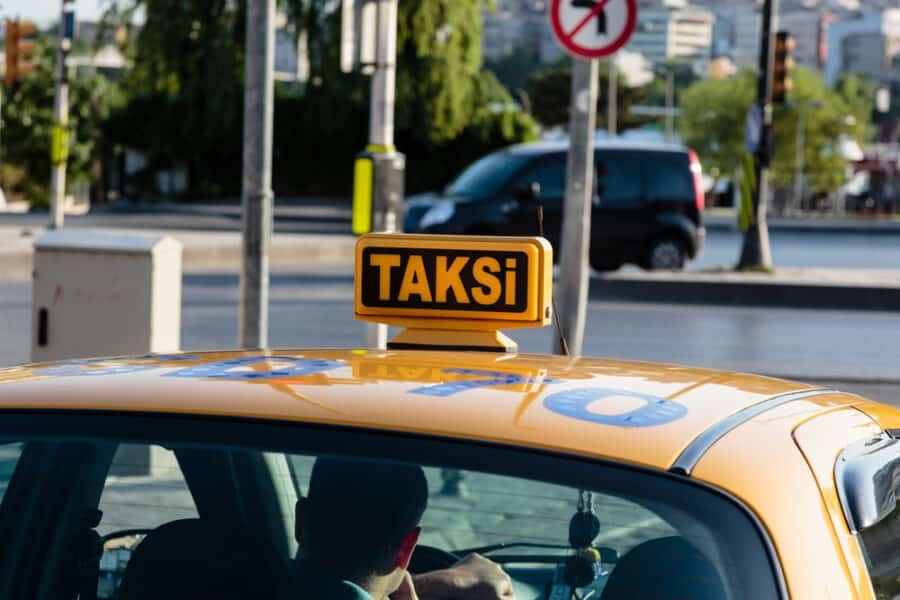
As with any touristic country in the world, taxi drivers can sometimes take you on the scenic route and end up charging you more. This isn’t all taxi drivers by any means, but some, especially in tourist resorts and even in Istanbul, will do so.
If you need to take a cab, find out beforehand from a waitperson or hotel staff member how much it should cost roughly. Then, when you get into the taxi, try to set the price with the driver or tell them you already know what it should cost. Most will go by meter, but they will go the direct route if they know you’re already clued up.
- Straight – düz (douz)
- Here – burası (burasou)
- Right – Sağ (Saou)
- Left – Sol (Soh)
- OK – tamman (tamman)
- Good – İyi (eiye)
34. Don’t Go For The Cheapest Hotel Option In Istanbul
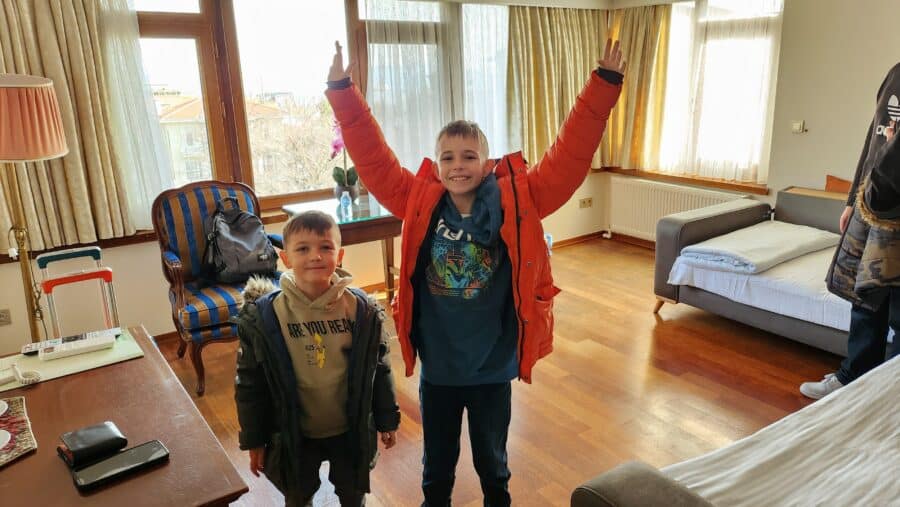
If you’re on a budget, choosing the most affordable option makes sense, especially in a city like Istanbul. However, it’s not the best idea. These hotels tend to be far away from the sights you’ll want to see, and the quality is certainly not the best.
In some cases, you get what you pay for, and if you want to stay somewhere safe and comfortable, read the reviews and be prepared to pay just a little more. Of course, that doesn’t mean you have to splash the cash, but perhaps just 100 lira a night more might give you a better place to stay.
35. Don’t Use A Tab
If you’re staying in a resort or hotel, you might be asked if you want a tab. If you do, you’ll run up a bill and pay it when you leave. Please don’t do it.
While most places are honest, some aren’t, and you’ll find extra drinks on your bill that you never had. Of course, when you’ve been there a week or sometimes even more, it’s hard to remember if you did indeed consume those drinks or not, and you’ll struggle to argue about it.
It’s much better to pay your bill at the end of every night and always check it before you pay it.
36. Don’t Tell People It’s Your First Time In Turkey
This ‘don’t’ depends on where you’re going and, unfortunately, who you are. If you’re a single girl in a Turkish tourist resort and you tell people that you’re new to the country, you can expect attention, and not all of it may be welcome.
Now, this isn’t common, so don’t think the worst of everyone, but there are some bad apples out there, just as there are in any country. Just tell people you’ve been before, and they’ll assume you know your way.
37. Don’t Change Your Money Beforehand
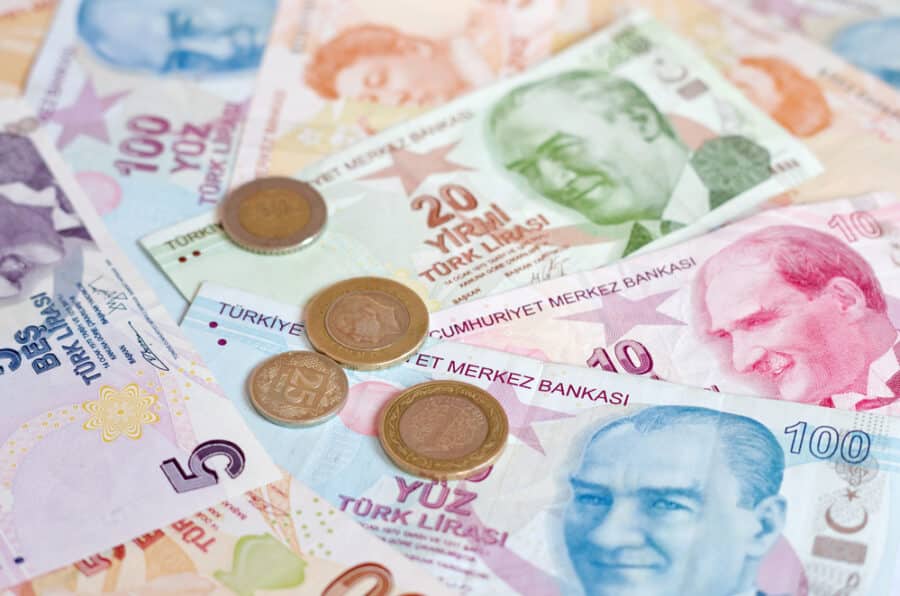
You might be tempted to change some of your money into Lira before you visit Turkey, but it’s best not to. Instead, if you want to change cash, do it when you arrive. You’ll get a much better rate, which means more for your money.
38. Don’t Underestimate The Size Of Istanbul Or Its Traffic

Istanbul’s traffic is ferocious. You’ll hear stories, and you might assume that people are exaggerating. They’re not. In fact, they might even be playing it down.
If you’re trying to get from A to B in Istanbul by road, don’t expect it to be fast. Getting around takes a long time, so plan your time carefully.
39. Don’t Expect The Weather Temperature To Be Accurate
If you’re visiting a holiday resort on the south coast during the summer months, you’ll probably track the weather for a few days before you arrive. The temperature you see, you’ll assume it’s correct, right? Wrong!
Expect at least 5 degrees or even more—during the peak summer months, this part of Turkey is HOT. It’s a dry heat and can be pretty oppressive. The best advice? Always say ‘yes’ to air conditioning!
40. Don’t Drink The Tap Water
It’s not safe, so please buy bottled water.
41. Don’t Forget To Carry Toilet Paper
Pro tip: Keep some tissues in your bag because most public toilets don’t replace toilet paper once they’re done for the day. This is even more likely if you’re not in the middle of a city. It isn’t very pleasant, but it’s just one of those things you tend to get used to!
42. Don’t Flush Toilet Paper
Another point related to toilet paper is not flushing it down the toilet. The plumbing in Turkey isn’t that great, and the pipes often get clogged up. You’ll see signs on the walls asking you not to flush, and there are small bins next to all toilets where you can place your used tissue.
43. Don’t Panic If It’s A Turkish Toilet
Most public toilet facilities will have a mix of regular toilets and Turkish toilets, e.g., the hole-in-the-floor type.
Look, don’t panic. It still gets the job done, so to speak. Just go with it.
44. Don’t Be A Good Samaritan If Someone Drops Something
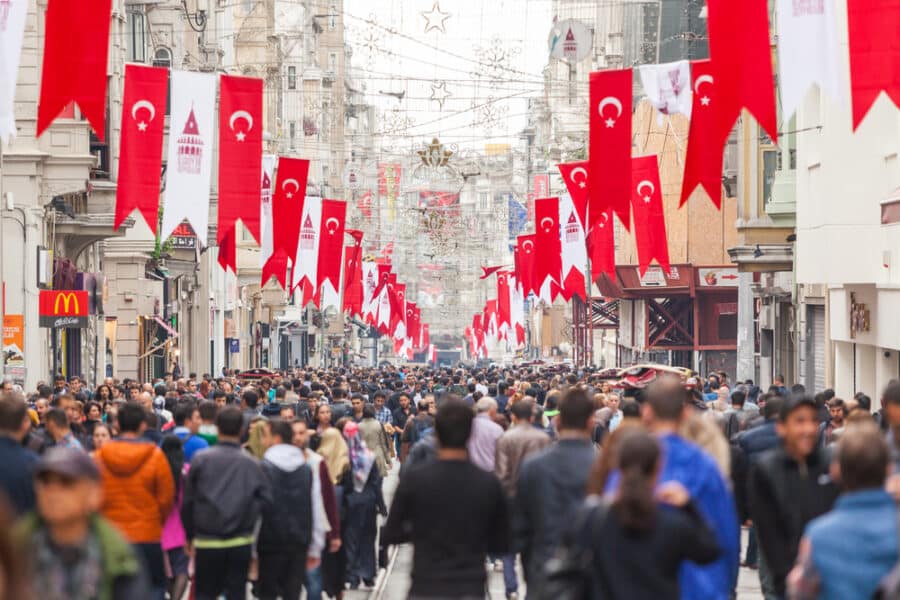
It’s a regular scam.
A person walking in front of you will drop something “accidentally,” and when you pick it up, they’ll try to sell it to you or offer you a service. Obviously, they’re not doing it out of the kindness of their heart; they want money for whatever they’re offering you. Just walk straight past.
By following these do’s and don’ts, you’ll have the best time in Turkey and no doubt be planning your return visit!
Move This Adventure To Your Inbox & Get An Instant Freebie

No spam. Unsubscribe at any time.
Best Time to Visit Turkey
When it comes to picking the best time to visit Turkey, the sweet spots are spring (April to May) and autumn (September to October).
During these months, you can enjoy moderate weather, perfect for exploring cities, ancient ruins, and beautiful coastlines without the intense heat or the crowds of peak summer months.
The capital, Ankara, and other provinces showcase their charm with comfortable temperatures, ideal for outdoor activities and sightseeing.
Food In Turkey
Turkish cuisine is a feast for the senses, offering a variety of flavors, from spicy to sweet and savory.
Don’t leave without trying some local specialties like kebabs, mezes, and the famous Turkish delight. Each region, from Ankara to the smaller provinces, has its unique dishes worth exploring.
Street food is also a big part of Turkish food culture, providing tasty and affordable options for travelers.
Currency In Turkey
The Turkish Lira (TRY) is the currency you’ll be using in Turkey. It’s always handy to have some cash, especially when visiting smaller towns or local markets.
ATMs are widely available, and most places accept credit cards. Before making transactions, consider checking the exchange rate and maybe purchasing a SIM card upon arrival to track exchange rates easily and manage your travel budget.
Is It Safe to Travel Throughout Turkey
Safety is a common concern among travelers, and while Turkey is a popular destination for many, it’s crucial to stay informed about the areas you plan to visit. The Turkish Government and Turkish security forces are vigilant in maintaining security, especially in major tourist areas and cities.
However, due to the increased risk of conflict or unrest, it’s advised to exercise caution when traveling to the provinces of Hakkari and Sirnak and areas close to the border with Syria in the southeast of the country.
Travelers should be aware that there have been terrorist attacks in Turkey, including in Ankara and other cities in Turkey, occurring with little or no warning, targeting places of worship, local government facilities, and places frequented by tourists. It’s vital to stay alert, avoid large crowds, and keep up-to-date with local news.
Government employees and others may be subject to specific advisories regarding travel restrictions, including avoiding non-essential travel to certain areas. Always check for any travel restrictions that may apply to you.
For those entering or leaving Turkey, remember that the Turkish Government tightly controls entry and exit. You’ll need to ensure your documents are in order, including entry and exit stamps in your passport.
When traveling alone or planning to travel to areas with travel advisories, it’s wise to inform someone of your travel plans and keep communication lines open.
While Turkey offers a rich and diverse experience for travelers, staying informed and cautious is key to a safe and enjoyable trip. Follow these tips and respect local customs and regulations, and you’ll be set for an unforgettable journey through Turkey!
Latest Travel Advice
For the most current travel advice, always check with the Ministry of Foreign Affairs or your own country’s embassy before departing. Given the dynamic nature of international travel, guidelines can change, affecting entry requirements, visa policies, and health advisories.
Ensure your travel plans are updated, and consider registering your trip if that service is available for added safety.
- Best Hotels in Cappadocia, Turkey
- All About Traveling In The Balkans
- Myths & Misbeliefs About Turkey
- Explore The 7 Geographical Regions Of Turkey
- 34 Idyllic Balkan Cities You Must Visit
- Incredible Black Sea Resorts
- Best Places To Stay In Sultanahmet Istanbul
- How To Get From Istanbul To Cappadocia
- How To Haggle In Turkey
- Cappadocia Hot Air Balloon Ride Tips
- Tips For Traveling Turkey On A Budget
- Discover Aydin City & Province
- Non-Touristy Places In Turkey Perfect For Instagram
- How To Get From Pamukkale To Cappadocia
- Best Sandy Beaches To Visit In Turkey


This tutorial will be really helpful for travelers.
Thanks for sharing this Info I love your blog .
I have a desire to visit Turkey , Thank you foe sharing such information ,This blog really help me out
Thanks for sharing blog like this. The information which you have provided is better than another blog.
You make me see Turkey in a way no one else ever had.
Maybe you can edit the translation area🤣
Great blog !
I would suggest making Kas your home base for day trips as it offers a perfect balance of vibrant nightlife, relaxation, and proximity to historical sites. Plus, it’s ideally located to explore nearby Ölüdeniz, Cirali, and Antalya.
While in Kas, don’t miss the chance to visit Calis Beach in Fethiye. It’s a beautiful spot to relax, swim, and enjoy stunning sunsets.
For historical sites, Ephesus is a must-visit, but also consider adding Xanthos, Patara, and Myra to your itinerary. These lesser-known gems are rich in history and offer a unique glimpse into Turkey’s ancient past.
Thank you for these suggestions.
Thank you so much for your insightful commentaries on Turkey. I am planning a trip next year tog with my wife. What would be your recommended stay to enjoy Turkey though I know there are still so much to see and explore?
When is a good time to travel there and what is your estimated budget a day? How much would a relatively good hotel cost (not 5 stars)? Thanks and looking forward to your expert tips.
Willie CHIEN
You guys will love it! I have 100s of posts with this kind of info for you. Did you see this section https://www.chasingthedonkey.com/turkey-travel-blog/
You could start here https://www.chasingthedonkey.com/tour-turkey-7-day-itinerary-ideas/ and https://www.chasingthedonkey.com/14-day-turkey-itinerary-2-weeks/ for some itinerary ideas.
Regarding costs, that is so variable depending on your style, start here for some ideas https://www.chasingthedonkey.com/budget-travel-in-turkey-on-a-budget/
As for accomm in Turkey, I would say look here with our suggestions https://www.chasingthedonkey.com/?s=turkey+hotels
Have a great trip.
Very insightful and has given me a lot to think about for our upcoming trip.
Istanbul is a wonderful city for those who want to spend a holiday in Istanbul. I definitely recommend you to visit. Especially be sure to visit Hagia Sophia. Don’t forget to come to the beach and eat raki and fish.
I have read a LOT of travel guides and blogs. And this is the most detailed. Most informative and one catering to every kind of travellers needs. Absolutely love it. I shall plan my trip with anything you have already written. Thank you so much!
Turkey is a captivating destination with a rich cultural heritage and diverse landscapes. Before your visit, here are 35 tips and things to know:
Cultural Etiquette: Respect local customs and traditions.
Currency: Turkish Lira is the official currency.
Language: Learn a few basic Turkish phrases for a smoother experience.
Visa: Check visa requirements before arrival.
Transportation: Use public transport and taxis, but be cautious with unregistered cabs.
Bargaining: It’s common in markets, so try your hand at haggling.
Dress Modestly: Especially when visiting religious sites.
Tap Water: Stick to bottled water to avoid stomach issues.
Tipping: It’s customary to tip around 10% in restaurants.
Safety: Exercise usual safety precautions and be aware of your surroundings.
This is great and useful information! Thanks 👍
I was impressed by how well Turkey is prepared for celebrating Christmas. We spent this time at Titanic Mardan Palace on the Turkish Riviera. The Winter concept was great! I made a video of our stay:
See you in cool places 😉